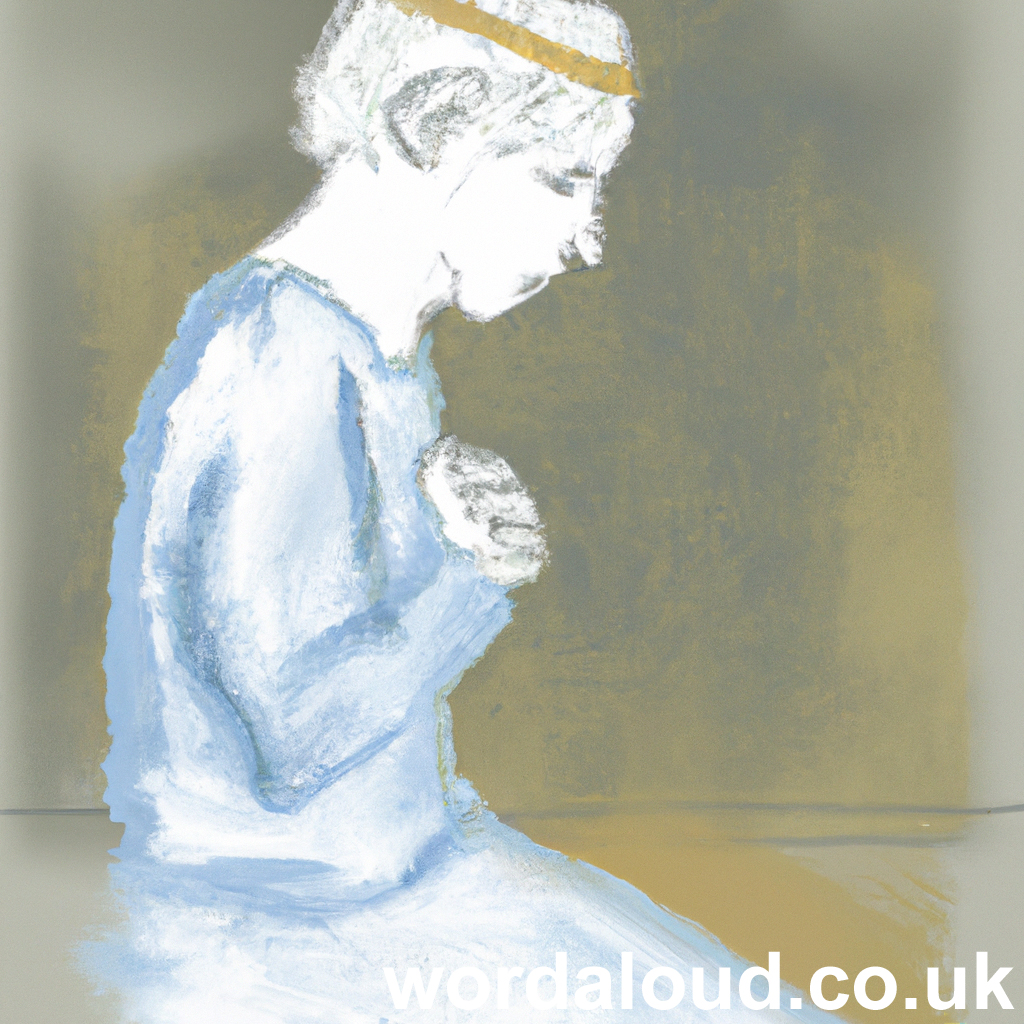Office Of Readings | Thursday, Lent Week 3 | From The Treatise Of Tertullian On Prayer
‘The spiritual offering.’
Tertullian
Tertullian was a key figure in shaping Latin Christian theology. Writing in the late 2nd and early 3rd centuries, he was among the first theologians to articulate Christian doctrine in Latin, helping to define many theological concepts that would later become foundational to the Church. His writings reflect a deep commitment to Christian moral discipline, an unyielding defence of orthodoxy, and a powerful rhetorical style that often draws sharp contrasts between Christian truth and pagan practice.
In this reading, taken from De Oratione, Tertullian reflects on the nature and power of Christian prayer. He emphasizes that prayer is the true spiritual sacrifice that has replaced the physical sacrifices of the Old Covenant. This reflects a fundamental theological shift in Christianity: whereas the Old Testament sacrificial system required offerings of animals and grain, the New Covenant calls for an interior offering—prayer made in spirit and truth. Tertullian draws from the Gospel of John (4:23–24), where Christ teaches that true worshippers will worship the Father in spirit and truth because God himself is spirit. In doing so, Tertullian situates prayer at the heart of Christian worship, making it an act of devotion that supersedes the old rites.
A key theme in this passage is the efficacy of prayer. Tertullian presents prayer as powerful and transformative, capable of achieving what was once accomplished through miraculous interventions in the Old Testament. He recalls instances where prayer brought divine intervention—rescuing the faithful from fire, beasts, and hunger—and argues that Christian prayer, perfected in Christ, has even greater power. However, unlike in the Old Testament, where prayer could bring down punishment or miraculous signs, Christian prayer, as taught by Christ, is directed toward mercy, intercession, and the turning away of divine wrath. This reflects a development in Christian understanding: rather than seeking miraculous rescues or judgments, the Christian prays for patience, endurance, and grace.
Tertullian also describes prayer as the highest form of offering to God, one that must be made with purity of heart. He uses the imagery of sacrifice, saying that prayer must be ‘fattened on faith’, ‘kept unblemished through innocence’, and ‘crowned with love’. This sacrificial language echoes both the Old Testament and the teachings of Christ, who emphasized the importance of sincerity and righteousness in prayer (Matthew 6:5-6). Just as the Israelites were required to offer unblemished sacrifices, so too must the Christian ensure that his or her prayer is made with a pure heart, free from sin and hypocrisy.
Furthermore, Tertullian presents a strikingly cosmic vision of prayer, asserting that all of creation participates in it. He describes how even animals, in their own way, offer prayers to God—the cattle lifting their heads, the birds spreading their wings in a form resembling the Cross. This perspective aligns with the biblical understanding of creation’s praise found in passages such as Psalm 148 and Romans 8:19–22, where all of creation longs for redemption. In this, Tertullian challenges an overly individualistic view of prayer, reminding the believer that prayer is not just a private act but part of a universal chorus of praise to God.
This passage also connects deeply with the themes of Lent. As a season of prayer, fasting, and almsgiving, Lent calls Christians to renew their commitment to God. Tertullian’s emphasis on prayer as the supreme offering aligns with this, reminding the faithful that true worship is not found in outward rituals alone but in a heart wholly devoted to God. The idea that prayer conquers God—that is, that sincere prayer moves the heart of God and obtains grace—should encourage the believer to persist in prayer, trusting that it is heard. Moreover, just as Christ prayed in Gethsemane and on the Cross, Christian prayer, especially in Lent, is a participation in the suffering and intercession of Christ.
In sum, Tertullian’s reflection on prayer offers a profound theological meditation on its nature, power, and place in Christian life. Prayer is the true sacrifice of the New Covenant, the means by which the faithful commune with God, and the force that sustains the Christian through trials. It is both a personal devotion and a cosmic reality, uniting the believer with all of creation in worship. Above all, it is a gift given by Christ, who himself prayed and taught his disciples to do the same. As Lent calls the Church to deepen its life of prayer, Tertullian’s words remind us that prayer is not merely an obligation but the highest expression of our relationship with God.

From The Treatise Of Tertullian On Prayer
Prayer is the offering in spirit that has done away with the sacrifices of old. What good do I receive from the multiplicity of your sacrifices? asks God. I have had enough of burnt offerings of rams, and I do not want the fat of lambs and the blood of bulls and goats. Who has asked for these from your hands?
What God has asked for we learn from the Gospel. The hour will come, he says, when true worshippers will worship the Father in spirit and in truth. God is a spirit, and so he looks for worshippers who are like himself.
We are true worshippers and true priests. We pray in spirit, and so offer in spirit the sacrifice of prayer. Prayer is an offering that belongs to God and is acceptable to him: it is the offering he has asked for, the offering he planned as his own.
We must dedicate this offering with our whole heart, we must fatten it on faith, tend it by truth, keep it unblemished through innocence and clean through chastity, and crown it with love. We must escort it to the altar of God in a procession of good works to the sound of psalms and hymns. Then it will gain for us all that we ask of God.
Since God asks for prayer offered in spirit and in truth, how can he deny anything to this kind of prayer? How great is the evidence of its power, as we read and hear and believe.
Of old, prayer was able to rescue from fire and beasts and hunger, even before it received its perfection from Christ. How much greater then is the power of Christian prayer. No longer does prayer bring an angel of comfort to the heart of a fiery furnace, or close up the mouths of lions, or transport to the hungry food from the fields. No longer does it remove all sense of pain by the grace it wins for others. But it gives the armour of patience to those who suffer, who feel pain, who are distressed. It strengthens the power of grace, so that faith may know what it is gaining from the Lord, and understand what it is suffering for the name of God.
In the past prayer was able to bring down punishment, rout armies, withhold the blessing of rain. Now, however, the prayer of the just turns aside the whole anger of God, keeps vigil for its enemies, pleads for persecutors. Is it any wonder that it can call down water from heaven when it could obtain fire from heaven as well? Prayer is the one thing that can conquer God. But Christ has willed that it should work no evil, and has given it all power over good.
Its only art is to call back the souls of the dead from the very journey into death, to give strength to the weak, to heal the sick, to exorcise the possessed, to open prison cells, to free the innocent from their chains. Prayer cleanses from sin, drives away temptations, stamps out persecutions, comforts the fainthearted, gives new strength to the courageous, brings travellers safely home, calms the waves, confounds robbers, feeds the poor, overrules the rich, lifts up the fallen, supports those who are falling, sustains those who stand firm.
All the angels pray. Every creature prays. Cattle and wild beasts pray and bend the knee. As they come from their barns and caves they look out to heaven and call out, lifting up their spirit in their own fashion. The birds too rise and lift themselves up to heaven: they open out their wings, instead of hands, in the form of a cross, and give voice to what seems to be a prayer.
What more need be said on the duty of prayer? Even the Lord himself prayed. To him be honour and power for ever and ever. Amen.








